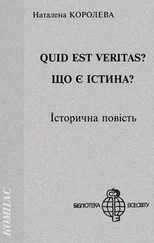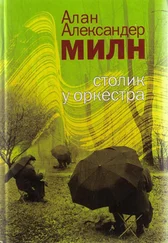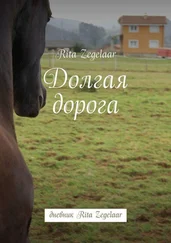Rita Monaldi - Veritas
Здесь есть возможность читать онлайн «Rita Monaldi - Veritas» весь текст электронной книги совершенно бесплатно (целиком полную версию без сокращений). В некоторых случаях можно слушать аудио, скачать через торрент в формате fb2 и присутствует краткое содержание. Жанр: Исторический детектив, на английском языке. Описание произведения, (предисловие) а так же отзывы посетителей доступны на портале библиотеки ЛибКат.
- Название:Veritas
- Автор:
- Жанр:
- Год:неизвестен
- ISBN:нет данных
- Рейтинг книги:3 / 5. Голосов: 1
-
Избранное:Добавить в избранное
- Отзывы:
-
Ваша оценка:
- 60
- 1
- 2
- 3
- 4
- 5
Veritas: краткое содержание, описание и аннотация
Предлагаем к чтению аннотацию, описание, краткое содержание или предисловие (зависит от того, что написал сам автор книги «Veritas»). Если вы не нашли необходимую информацию о книге — напишите в комментариях, мы постараемся отыскать её.
Veritas — читать онлайн бесплатно полную книгу (весь текст) целиком
Ниже представлен текст книги, разбитый по страницам. Система сохранения места последней прочитанной страницы, позволяет с удобством читать онлайн бесплатно книгу «Veritas», без необходимости каждый раз заново искать на чём Вы остановились. Поставьте закладку, и сможете в любой момент перейти на страницу, на которой закончили чтение.
Интервал:
Закладка:
A master chimney-sweep, in addition to an apprentice, must have a Geselle — which is to say, an assistant, jobber, or servant boy, whatever you want to call him. Mine was Greek, and I had met him for the first time at the convent of Porta Coeli, where he acted as factotum: servant, odd-job man and messenger. It was Simonis, the talkative young idiot who, two months earlier, had accompanied Cloridia and me to our meeting with the notary.
As soon as he had heard that I owned a chimney-sweeping business, Simonis had asked me if I needed a hand. His temporary job clearing the cellars at Porta Coeli was about to end and Camilla herself had warmly recommended him, assuring me that he was much less of an idiot than he seemed. And so I had engaged him. He would keep his little room at Porta Coeli until my house was ready at the Josephina, then he would come and live with me and my wife, as assistants usually do with their master.
As the days went by we had a few short conversations, if I can so term the laborious verbal exchanges between Simonis, whose grasp of reasoning was shaky, and myself, whose grasp of the language was even more so. Simonis, perennially good-humoured, would ask countless questions, most of them fairly ingenuous, intermingled with a few friendly quips. When I understood these latter, they served, at least, to put me at my ease and make me appreciate the company of this scatterbrained but gentle Greek, amid the Nordic coarseness of the Viennese.
With his corvine fringe hanging down over his forehead, his glaucous eyes fixed rigidly on his interlocutor, his facial features, which would suddenly turn grave, it was never clear to me whether Simonis followed my answers to his questions, or whether his mind was seriously obfuscated. His protruding upper teeth, vaguely rabbit-like, were always exposed to the air, covering much of his lower lip, and he held his right forearm out in front of himself, but with his wrist bent so that his hand dangled downwards, as if the limb had been maimed by a sword blow or some other accident; these features inclined one to the latter hypothesis — that Simonis was a boy of fine character and goodwill, but with very little presence of mind.
This suspicion was corroborated by my sudden discovery, one day, that my young assistant understood, and spoke, my own language.
Tired of mumbling half-sentences in German, one day, as we were cleaning a particularly problematic flue, I was about to slip and, taken by surprise, I yelled in Italian for him to help me, pulling on the rope that was holding me up.
“Don’t worry, Signor Master, I’ll pull you up!” he immediately reassured me, in my own language.
“You speak Italian.”
“Yes,” he answered with candid terseness.
“Why did you never tell me?”
“You never asked me, Signor Master.”
And so it was that I discovered that Simonis was not in Vienna in search of some little job to make ends meet, but for a far nobler reason: he was a student. Of medicine, to be precise. Simonis Rimanopoulos (this was his surname) had begun his studies at the University of Bologna, which explained his knowledge of Italian, but then the famine of the year 1709 and the prospect of a less impoverished life had sent him — reasonably enough — to the opulent city of Vienna and its ancient university, the Alma Mater Rudolphina , on which students from Hungary, Poland, eastern Germany and many other countries converged.
Simonis belonged to the well-known category of Bettelstudenten — poor students, those without family support, who maintained themselves by all sorts of expedients, including, if necessary, mendicancy.
It had been a stroke of luck for Simonis that I had hired him: in Vienna the Bettelstudenten were not looked on with favour. Despite the frequent edicts published, vagabond students were often to be seen — together with others who joined them, but who were not really students — begging in the streets and in front of the churches and houses night and day, even during lesson times. Under cover of studying, they loafed about, pilfering and thieving. Everyone remembered the tumult that had broken out between 17th and 18th January 1706 both within and without the city, and also at Nussdorf; strict (though fruitless) investigations into this affair were still being carried out so that the culprits might be punished harshly. These students tarnished the good name of the other students and His Caesarean Majesty had issued numerous resolutions, with the aim of uprooting once and for all this lamentable practice of betteln , or begging — which was the word for lounging about and succumbing to vice under the pretext of study. After the tumults of five years earlier, the rector, the Caesarean superintendents and the assembly of the ancient University of Vienna had been commanded to issue a special edict giving a final warning to the Bettelstudenten who were roaming around and not studying: within fourteen days they had to leave the Caesarean capital. If they failed to do so they would be seized by the guards and taken ad Carceres Academicos , to the university prisons, where suitable punishment would be meted out. Those impoverished students, on the other hand, who daily and continuously applied themselves to their studies, had to seek a study grant in the Alumnates or some other means of sustenance; only those who were unable, because of the numbers, to obtain such assistance, or those who were following a particularly demanding course of study and for the moment had no other choice than to seek alms outside lesson times, would be allowed to continue in this fashion — but only for their bare necessities and until the arrival of new orders. In addition they must always carry with them the badge identifying them as true Bettelstudenten , which they must get renewed every month by the university and wear on their chests while begging. Otherwise they would not be recognised as genuine poor students but as vagabond students, and so be immediately incarcerated.
This explains why Simonis had offered himself as an assistant chimney-sweep: the risk of having to beg for alms to survive, and consequently ending up in prison, was always lurking.
But how that mild and simple spirit had managed to learn my own language so well and, above all, how the devil he managed to study (and at the university, no less) — these matters remained a mystery.
“Signor Master, do you want me to drive the cart, as I know the way?”
I had, indeed, only the vaguest idea where the Caesarean property lay: in the plain of Simmering, a flat area of grassland south-east of Vienna near the village of Ebersdorf. The exact name, as it appeared in the deed of appointment, was nothing if not exotic: “the Place with No Name known as Neugebäu”, or the New Building. I had tried to question my workmates, but I had received only vague answers, partly of course because my imperial appointment had not made me popular. No one had been able to give me a clear idea of the building I was about to inspect. “I’ve never been there,” said one, “but I think it’s a kind of villa”. “Even though I’ve never seen it, I know it’s a garden,” said another. “It’s a hunting lodge,” swore another, while the next one defined it “a bird enclosure.” One thing was certain: none of my fellow chimney-sweeps had ever visited the place, nor did they appear to have any wish to set foot there.
It was a long way to the Place with No Name. And so I was perfectly happy to leave the mule’s reins in Simonis’s hands. My little boy had asked, and had been allowed, to sit on the box seat, alongside the Greek, who every so often let him hold the reins to teach him how to drive the cart. I settled myself behind them, among the tools.
Читать дальшеИнтервал:
Закладка:
Похожие книги на «Veritas»
Представляем Вашему вниманию похожие книги на «Veritas» списком для выбора. Мы отобрали схожую по названию и смыслу литературу в надежде предоставить читателям больше вариантов отыскать новые, интересные, ещё непрочитанные произведения.
Обсуждение, отзывы о книге «Veritas» и просто собственные мнения читателей. Оставьте ваши комментарии, напишите, что Вы думаете о произведении, его смысле или главных героях. Укажите что конкретно понравилось, а что нет, и почему Вы так считаете.











